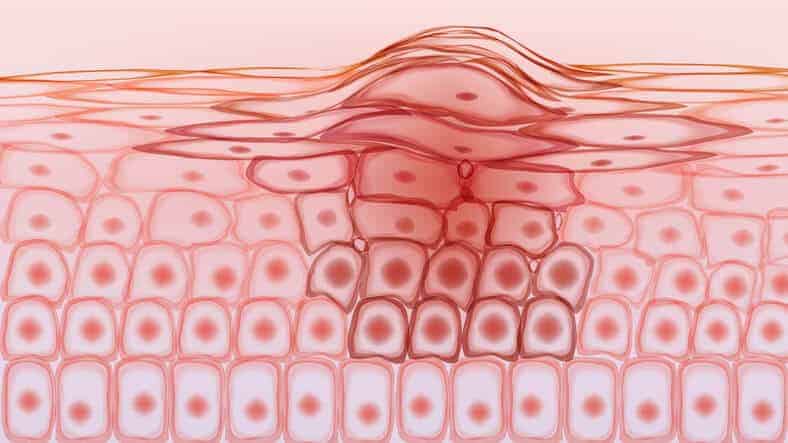Research has shown tumors have two common ways of resisting targeted cancer treatment. Until now, those resistance mechanisms were thought to be separate, but a new study from the Abramson Cancer Center is the first to show they’re actually connected by a process called ER translocation—where the first mechanism leads to a chain reaction that activates the second. Since drugs already exist that can block some of the steps of ER translocation, this finding potentially opens the door for new approaches to overcome resistance to treatment. Researchers published their findings in Cancer Discovery.
BRAF mutations occur in a genetic pathway known as MAPK, and they are known to drive tumor growth in melanoma. This mutation is commonly targeted with a combination of BRAF inhibitors, as well as drugs called MEK inhibitors. These block ERK, which is an important protein in the MAPK pathway. The combination has led to higher response rates in melanoma, but resistance is common. ERK reactivates itself, and cancer cells recycle their own parts to survive, a process known as autophagy.
“In this study, we not only identified how ERK reactivates, but also that it’s this reactivation which actually increases autophagy,” said the study’s senior author Ravi K. Amaravadi, an associate professor of hematology-oncology at the Perelman School of Medicine, and co-leader of the Cancer Therapeutics Program in the Abramson Cancer Center.
Researchers found that when melanoma cells are exposed to BRAF and MEK inhibitors, proteins in the MAPK pathway—including ERK—move from a part of the cell called the cytoplasm to another called the endosplasmic reticulum (ER). The researchers call this movement, “ER translocation,” and they found that it was required for ERK reactivation, which then increases autophagy.
If our reporting has informed or inspired you, please consider making a donation. Every contribution, no matter the size, empowers us to continue delivering accurate, engaging, and trustworthy science and medical news. Independent journalism requires time, effort, and resources—your support ensures we can keep uncovering the stories that matter most to you.
Join us in making knowledge accessible and impactful. Thank you for standing with us!

